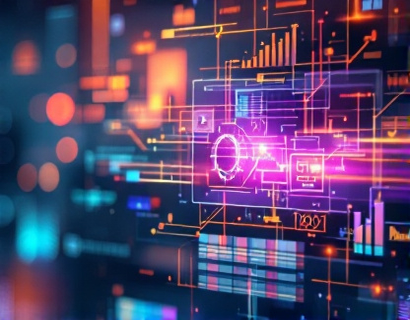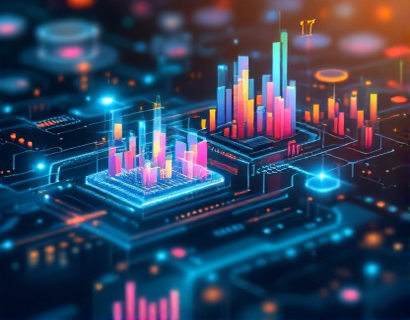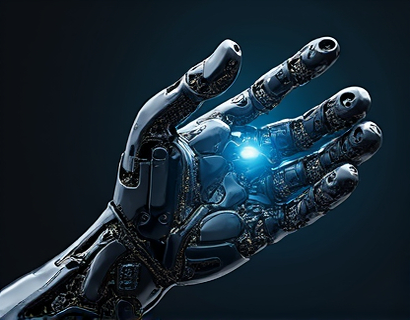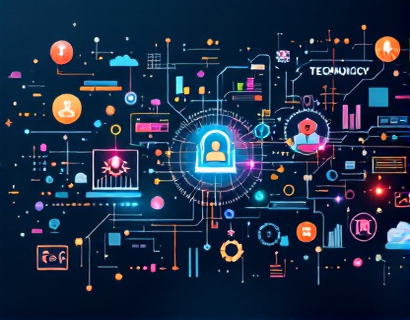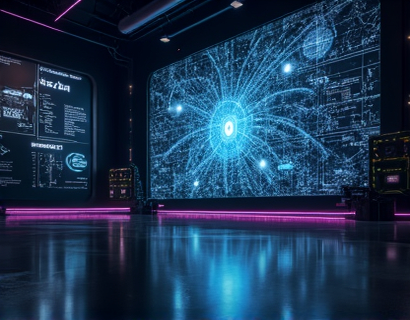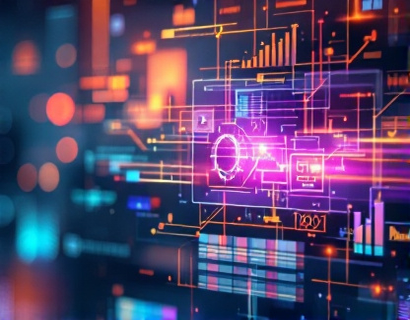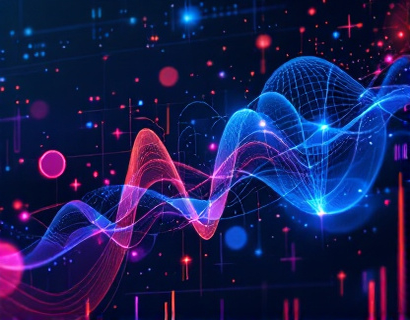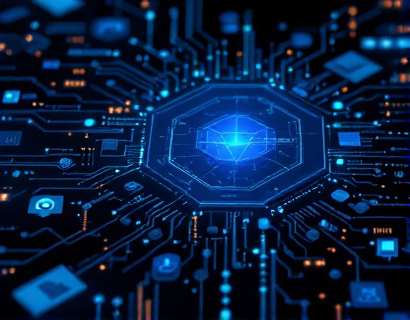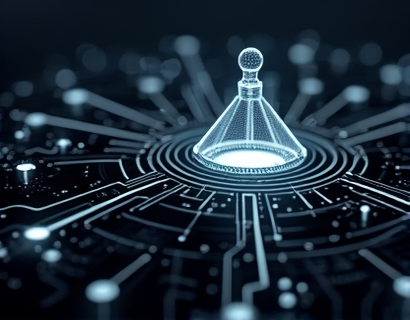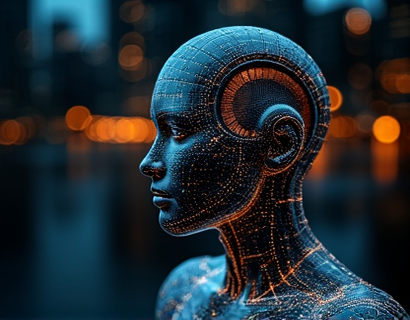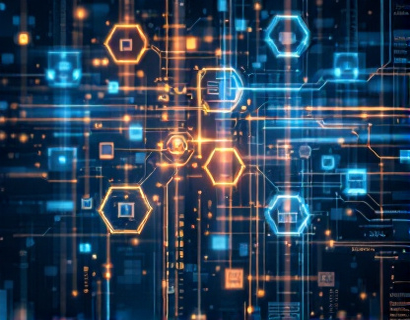Crypto and AI: Pioneering Enhanced Digital Experiences for the Future
The intersection of cryptocurrency and artificial intelligence (AI) is giving rise to a new era of digital experiences, transforming how we interact with apps and online services. This fusion of technologies is not just a trend but a fundamental shift in the way digital platforms operate, offering unprecedented levels of security, efficiency, and personalization. As we explore this cutting-edge fusion, it's essential to understand the latest advancements and their implications for the future of digital services.
The integration of AI into cryptocurrency has led to the development of smart contracts that are not only self-executing but also capable of learning and adapting to new inputs. These smart contracts can automate complex processes, reducing the need for intermediaries and lowering transaction costs. For instance, AI-driven algorithms can analyze market trends and adjust contract terms in real-time, optimizing outcomes for all parties involved. This level of automation and intelligence is revolutionizing the way we think about digital transactions and agreements.
One of the most significant benefits of combining crypto and AI is enhanced security. Traditional systems often rely on centralized databases, making them vulnerable to hacking and data breaches. In contrast, blockchain technology, the backbone of cryptocurrency, provides a decentralized and immutable ledger. When AI is applied to blockchain, it can detect and prevent fraudulent activities more effectively. Machine learning models can identify patterns and anomalies in transaction data, flagging potential security threats before they become issues. This proactive approach to security is crucial in a world where cyber threats are becoming increasingly sophisticated.
Personalization is another area where crypto and AI are making waves. Traditional digital services often struggle to provide a truly personalized experience, as they rely on user-provided data and basic algorithms. AI, however, can analyze vast amounts of data from various sources, including user behavior, preferences, and even biometric data, to create highly tailored experiences. In the context of cryptocurrency, this means that users can enjoy customized wallet interfaces, investment recommendations, and even personalized cryptographic keys. The result is a more intuitive and user-friendly experience that keeps users engaged and satisfied.
The use of AI in cryptocurrency also extends to predictive analytics. By leveraging machine learning algorithms, it's possible to forecast market trends with greater accuracy. These predictions can be invaluable for investors and traders, helping them make informed decisions and maximize their returns. AI can process and analyze data from multiple sources, including news articles, social media sentiment, and historical price data, to generate comprehensive insights. This level of foresight is a game-changer in the fast-paced world of crypto trading.
Moreover, the combination of crypto and AI is paving the way for decentralized finance (DeFi) platforms that are more intelligent and user-friendly. DeFi aims to create financial systems that are open, transparent, and accessible to everyone. AI can enhance this vision by automating complex financial operations, such as lending, borrowing, and trading, without the need for human intervention. Smart contracts powered by AI can execute transactions based on predefined conditions, ensuring that all parties adhere to the agreed terms. This not only increases efficiency but also reduces the risk of human error and fraud.
Another exciting development is the emergence of AI-driven digital assets. These assets are not just tokens representing traditional assets but are themselves intelligent entities that can adapt and evolve based on market conditions. For example, an AI-powered token could adjust its utility or value in response to changes in supply and demand, making it a more dynamic and responsive investment option. This level of adaptability is a significant step forward in the evolution of digital assets and could redefine how we think about ownership and value in the digital realm.
The impact of crypto and AI is not limited to financial applications. In the realm of digital content creation and distribution, these technologies are transforming how creators monetize their work. AI can analyze audience preferences and behavior to recommend the most effective content strategies, while blockchain ensures that creators receive fair compensation for their work. Smart contracts can automate royalty payments, ensuring that artists, writers, and other content creators are rewarded in real-time based on the usage of their content. This shift towards a more equitable and transparent system is empowering creators and fostering a more vibrant digital ecosystem.
In the field of gaming, the fusion of crypto and AI is giving birth to new paradigms of interactive experiences. Blockchain-based games can offer true ownership of in-game assets through non-fungible tokens (NFTs), and AI can enhance gameplay by creating more realistic and adaptive non-playable characters (NPCs). These NPCs can learn from player behavior and adjust their actions accordingly, providing a more immersive and challenging experience. Additionally, AI can be used to generate procedural content, ensuring that each playthrough is unique and engaging.
The healthcare sector is also benefiting from the integration of crypto and AI. Secure and private health data management is a critical challenge, and blockchain provides a robust solution. AI can analyze medical data to identify patterns and predict patient outcomes, aiding in early diagnosis and personalized treatment plans. Smart contracts can automate insurance claims and drug prescriptions, streamlining the healthcare process and reducing administrative burdens. This combination of technologies has the potential to revolutionize healthcare delivery, making it more efficient, secure, and patient-centered.
In the realm of supply chain management, crypto and AI are enhancing transparency and traceability. Blockchain can provide an immutable record of every step in the supply chain, from production to delivery. AI can analyze this data to optimize logistics, predict delays, and ensure compliance with regulations. This level of visibility and control is invaluable for businesses looking to improve their operations and build trust with consumers. The ability to track products in real-time also helps in combating counterfeiting and ensuring the authenticity of goods.
As the adoption of crypto and AI continues to grow, it's essential to address the challenges and considerations that come with these technologies. One of the primary concerns is regulatory compliance. The decentralized nature of blockchain and the pseudonymous nature of cryptocurrencies can pose challenges for regulators aiming to enforce laws and prevent illicit activities. However, AI can play a role in compliance by monitoring transactions and identifying suspicious patterns, helping to bridge the gap between innovation and regulation.
Another consideration is the environmental impact of blockchain technology, particularly proof-of-work (PoW) systems which require significant computational power and energy. The development of more efficient consensus mechanisms, such as proof-of-stake (PoS), and the integration of renewable energy sources are steps in the right direction. AI can also contribute to this effort by optimizing energy usage and identifying more sustainable practices in blockchain operations.
Looking ahead, the future of crypto and AI is bright, with numerous opportunities for innovation and growth. As technology continues to advance, we can expect even more sophisticated applications that further blur the lines between the physical and digital worlds. The convergence of these technologies will likely lead to the creation of entirely new industries and business models, driving economic growth and transforming society in ways we are only beginning to imagine.
In conclusion, the fusion of cryptocurrency and AI is not just a technological advancement but a transformative force that is reshaping the digital landscape. By enhancing security, personalization, and efficiency, these technologies are paving the way for a more connected, intelligent, and equitable future. As we continue to explore and harness the potential of crypto and AI, the possibilities for enhanced digital experiences are limitless.



